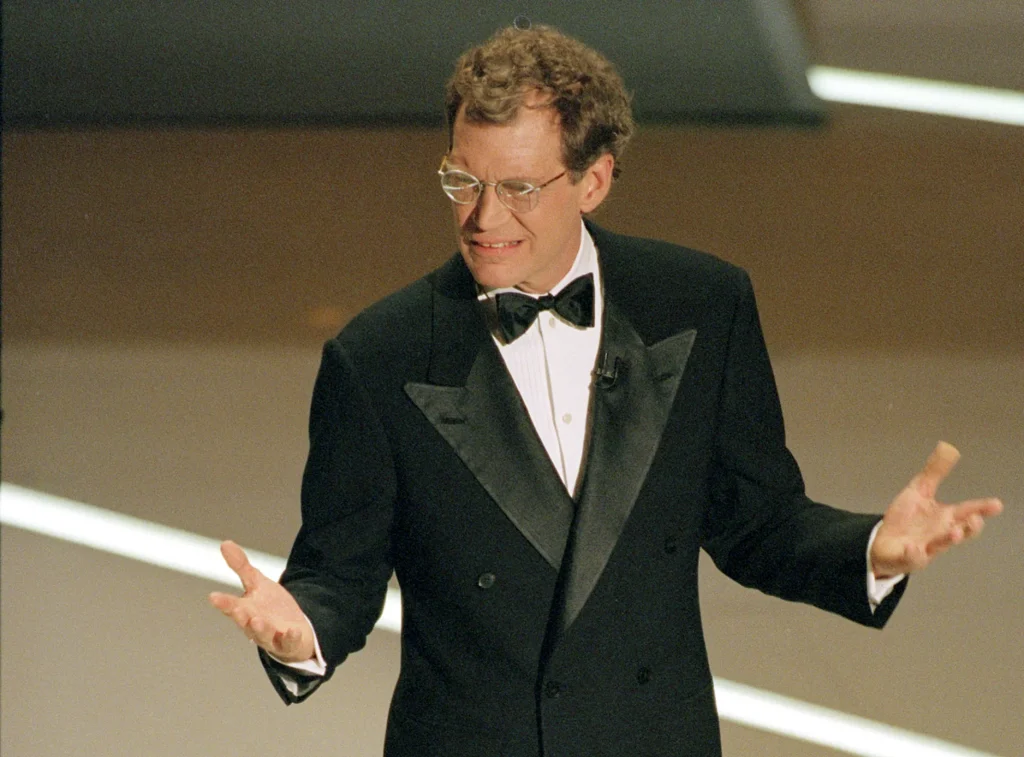Imagine sitting in front of your TV for three hours straight and watching as a list of names while a select group of celebrities enjoys a dinner together. Sitting on your couch, you’ll watch them get unbelievably drunk and enjoy some foie gras and caviar while you wait impatiently for your instant noodles to finish cooking. Pretty bleak, right? Now, insert a well-known comedian into the mix to read those names, and you’ve got a run-of-the-mill, only mildly entertaining Hollywood awards show.
Sometimes, the simple addition of a talented comedian makes for an absolute spectacle of a night that goes down in history. But what sets these shows apart? Why does Ricky Gervais’ Golden Globes monologue work, while Jo Koy’s doesn’t? In other words, what makes a good awards show host?
At first glance, the obvious answer seems to be that better comedians make for better hosts. However, various examples disprove that claim; take famous comedian and former late-night host David Letterman, for example, who was labeled the worst awards show host by TIME magazine after a disastrous monologue at the 1995 Oscars. Instead, I think the success of a host comes down to two factors: their ability to adapt to various situations and their understanding of the audience.
Oftentimes, what makes or breaks a comedic monologue is the presenter’s ability to adapt to the audience and think on their feet. The nature of awards shows arguably make this job easier — the audience is full of A-list celebrities whose jobs are to express themselves, but knowing how to adapt is still largely dependent on the host’s talents.
Take, for example, the most recent Golden Globes. When Jo Koy’s monologue this year didn’t land with the audience, he turned to making excuses and blaming those jokes on the other writers instead of trying to come up with better material. In contrast, when Ricky Gervais hosted the show in previous years, he committed to all of his jokes, and leaned into his attitude of just being there for the fun and controversy. An infamous example is from his 2022 monologue, where he made numerous jabs at Hollywood’s notoriety for its connections to pedophilia and called out his audience for their alleged connections to Jeffrey Epstein.
In the best cases, though, the need to adapt never comes up at all because the host understands their audience and their job. When this happens, you end up with some of the funniest, most passionate hosts — like stand-up comic John Mulaney, known for his more traditional comedic style and clever writing.
Between his monologue at this year’s Governor’s Awards and his co-hosting of the Film Independent Spirit Awards with Nick Kroll in 2017, Mulaney proved to have some of the most consistent humor. That’s because he never relies on controversy and shock factor and instead makes genuine jokes that appeal to his audience and are relevant to their films — like when he praised Angela Bassett’s Oscar-nominated performance in a Marvel movie by comparing it to receiving a Pulitzer Prize for a Reddit comment. Mulaney opens and closes with genuine praise for Bassett and her acting abilities, acknowledging her caliber while still poking fun at the situation. When hosts lack this understanding, you end up with Koy’s Barbie and Taylor Swift jokes.
Ultimately, in a world full of unoriginal and unpredictable comedians, these two factors mark the difference between a night to remember and a slap on the wrist on Twitter. Or, in the worst case, a slap in the face.



























